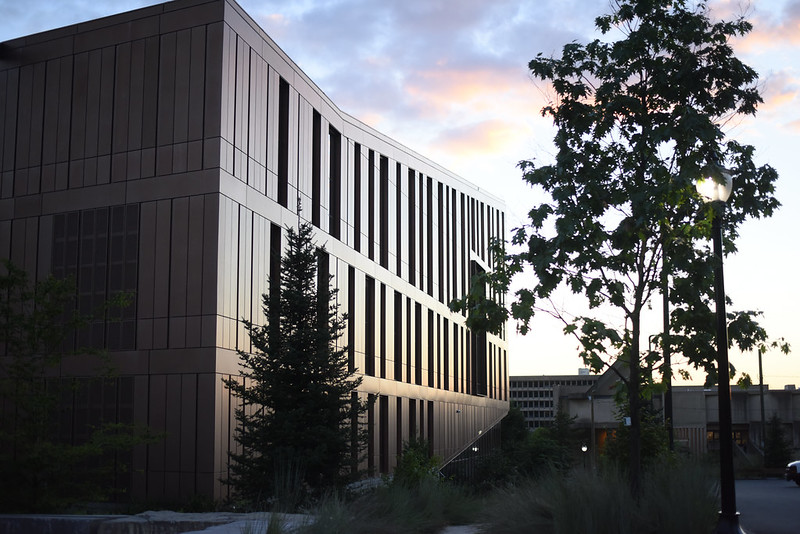On Nov. 3, the University of Massachusetts Department of Philosophy hosted Olúfẹ́mi O. Táíwò, associate professor of philosophy at Georgetown University, for the 2023 Gary Matthews Memorial Lecture. “The Point is to Change It” lecture focused on the vision of education presented by Brazilian sociologist Paulo Freire.
In a conversation before the lecture, Táíwò highlighted what he hoped attendees would gain from the lecture: “There’s different ways we could think about the point of education…and I think we think so much about educating people that we don’t always get the chance to think about why.”
“I hope I can warm people up to thinking more broadly about what this opportunity is that they have to study here and think more broadly about how education can change the way they share democratic life with other people and make a difference outside just what their potential jobs are,” Táíwò said.
Joseph Levine, professor of philosophy at UMass, began the lecture by remembering the namesake of the lecture series – the late Gary Matthews, UMass philosophy professor. Matthews was remembered as a professor who lived his teachings as a social justice activist and an avid teacher of philosophy to children.
Táíwò prefaced the lecture by asking “what is the point of learning?” He answered the question with a quote from Andaiye, a Guyanese feminist activist, “Old foundations are crumbling, and new ones are not yet being imagined.”
Táíwò then explained how he got to thinking about Paulo Freire while writing a book called “Elite Capture,” which he described as “both a criticism and a defense of identity politics.”
The main concern he has in the book is with what he terms “deference politics.” Táíwò noted deference politics could be seen as a focus on changing individual behaviors to combat injustice.
He said one of the main points of contention is “whether to focus on deference politics or building the power to change the structures.”
Táíwò explained Paulo Freire’s concept of “banking teaching,” in which knowledge only exists in the head of the teacher and must be passed down from teacher to student. He also explained Massificação, or Massification, which is the conversion of a population of people into an object of management.
Táíwò said education should break these models and make man a “subject” not an “object” by reaching Conscientizacao, or the development of critical consciousness.
Taiwo concluded that the intention is not for the educator to instruct the educated about what to do. The point is for both to become subject, “people participating in deciding what to do, not merely being decided for.”
Once the lecture concluded, Levine was asked how he would possibly implement some of the tools and techniques from the lecture.
“I want a philosophy class not to be a session where we all affirm each other’s beliefs, where we all celebrate how much we agree with each other and then we dump on the powers that be,” he said. “I want people to see… the other views and what their arguments are and if you disagree, don’t just say this offends me but say why you disagree.”
Ned Markosian, professor of philosophy and co-director of the UMass Center for Philosophy, attended the lecture and highlighted the intersection of the work the Center does and Freire’s work. The UMass Center for Philosophy and Children trains UMass students to do philosophy with second graders from Springfield and Holyoke. “A weird thing is kids are already good at doing philosophy and it kind of gets hammered out of them when they are young,” Markosian said.
“Maybe they take a philosophy class, and the philosophy professor is like, ‘oh here is this cool way of thinking,’” he said, “and a lot of kids say they used to do that cool way of thinking but grownups told me not do it.”
The program is offering classes to participate in this project during the 2024 spring semester.
Samuel Cavalheiro can be reached at @[email protected].



















